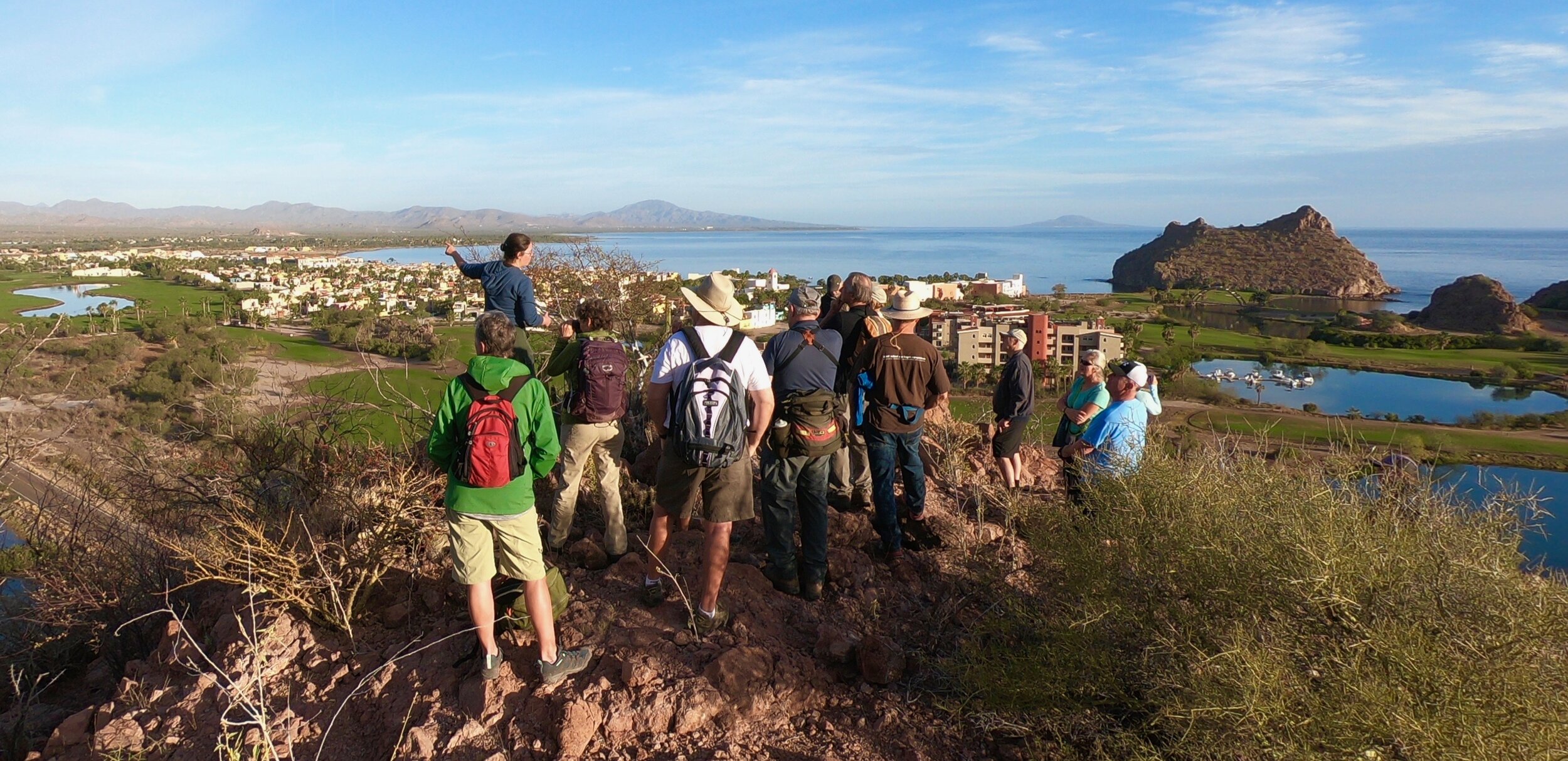Beach and Arroyo Cleanups and Recycling
From the poster promoting an Earth Day cleanup in recent years
These days, campaigns to remove trash from the natural environment are not new for any part of the world. Recycling is also a very well-known practice. Even though Loreto is a small town with relatively slow growth, the area has reached some milestones on both fronts. Beach, arroyo and canyon cleanups have occurred in the municipality for more than 30 years. At one point, the community even invited groups to take responsibility for keeping specific stretches of beach free of trash with an “adopt-a-beach” system modeled on community programs for roadside litter control.
Also, Loreto was the starting point for formal environmental education within the Ministry of Education for the State of BCS. Loreto has a well-functioning Committee for the Maritime Federal Zone (municipal and federal governments) which removes trash and debris from beaches in the municipality on a daily basis. Yet despite all these efforts, there is still trash on the beaches and in the arroyos.
Every bag of trash collected from the beaches is opened and sorted for materials that can be kept out of the landfill.
For these reasons, the Keep Loreto Magical Foundation program answers the call of neighbors wanting to do cleanups. Our volunteers bring clear bags, gloves, dust masks, food and drink to work sites. We provide some transport, and teach how to separate trash so it can be recycled. Recycling is done in 14 categories (paper/cardboard, tin, aluminum, glass, plastic PET, plastic film, cellophane, Styrofoam, metal, hard plastic, tires, fish net, cloth and shoes). In some events, recycling is done for materials as small as a penny! After most events, 95% of all materials collected are recycled. In our last beach cleanup, out of 100 bags of trash, only half a bag went to the Municipal dump.
For 25 years in Mexico, the campaign urging everyone to “Put Trash in the Correct Place” (Pon La Basura en Su Lugar) has been repeating that municipal street barrels are the place for anything a passerby should have to discard. In turn, the municipality is expected to empty trash barrels at an approved site—a municipal landfill of some kind. The federal government officially censures the use of arroyos for municipal dumping, yet this is what happens in Loreto.
Loreto is on foothills of the Sierra de la Giganta, so all of its land slopes toward the sea. Trash from the dump spreads to the sea and desert via wind and rains. While the trash is at the dump, it is being eaten by migrating birds (such as egrets, caracaras, herons and crows), as well as by desert wildlife and goats from neighboring ranches.
This short video shows why volunteers in our projects give special attention to the litter that brings flocks to the beach near the airport.
During the three years of the 2015-2018 municipal administration, more than eight fires consumed trash lying on the dump’s 30-metre-high wall of accumulated refuse. Each fire was more intense than the last, leaving embers that remained hot for weeks and went on contaminating the air with toxins from plastics, electronics, tires, and recently with medical residue illegally deposited there. The arm of federal government that enforces environmental law – PROFEPA – has sued the City of Loreto for the location of the dump, for management malpractice, and now for the fires. Yet the burning of trash continues because of events that municipal officials call accidents.
Before 2015, Loreto’s residents had never witnessed smoke in half of the town’s homes and into the Marine Park, there remaining visible within a 50 km radius. For all of these reasons, the best option with regard to trash is to refuse nonessential plastic packaging and to generally find ways of taking as little as possible from non-renewable resources.
Because more than 90% of trash that reaches the dump is plastic and the “accidental” fires at the dump pollute the air with carcinogenic chemicals from plastics, The Keep Loreto Magical Foundation is part of the state-coalition campaign “Desplastificate” – take plastic out of your life. A state law was passed to prohibit the use of single-use plastics such as plastic bags, straws and Styrofoam containers (cups, plates, bowls) as of May 2018, and businesses and consumers were instructed to phase out the use of their plastic items over the subsequent 18 months. After that, users of plastics were expected to opt for organic alternatives to plastic or else face sanctions.
To facilitate public support for the law, Foundation staff identified two families (one from Nopoló and one from Loreto downtown) willing to hold to a “zero trash” rule for a year. Results and videos will be shared on social media to provide consumers with ideas how to reduce their trash. Furthermore, because micro-plastics are now found in the food chain of our sea, we are considering plastic analysis on fisheries and mollusks within Loreto’s Marine Park.


